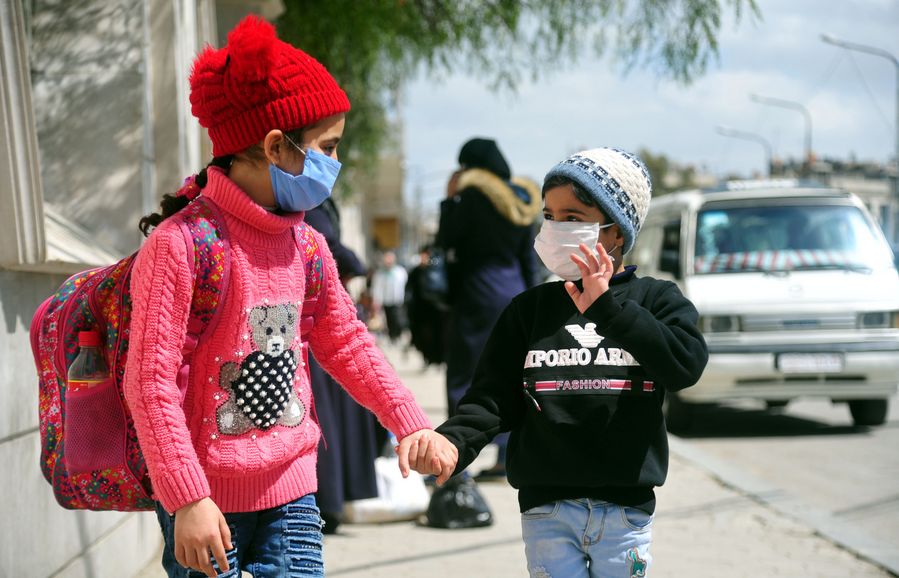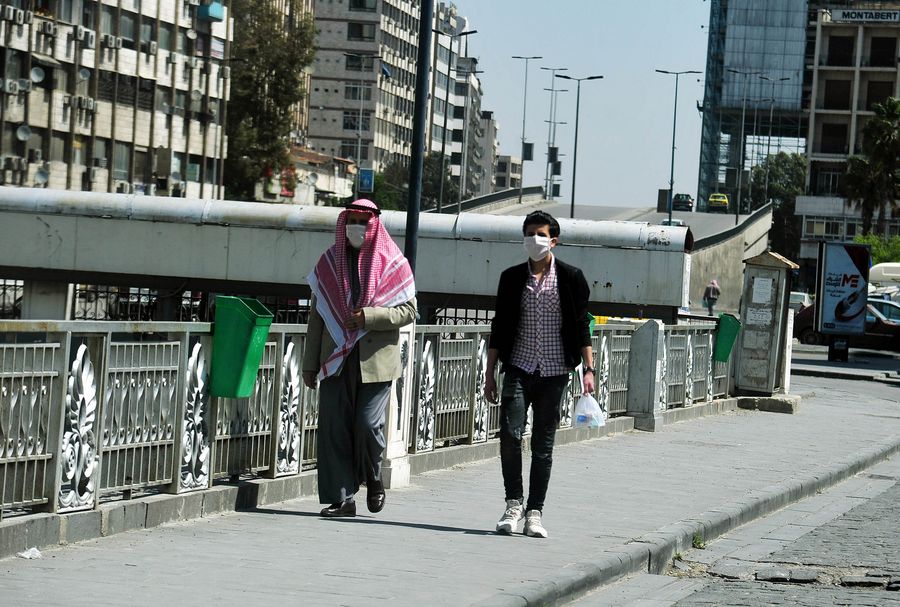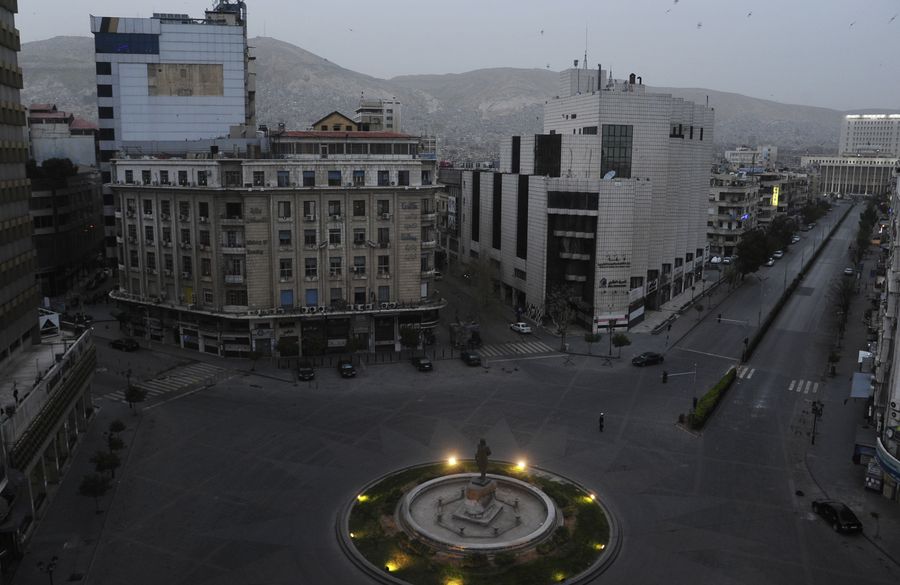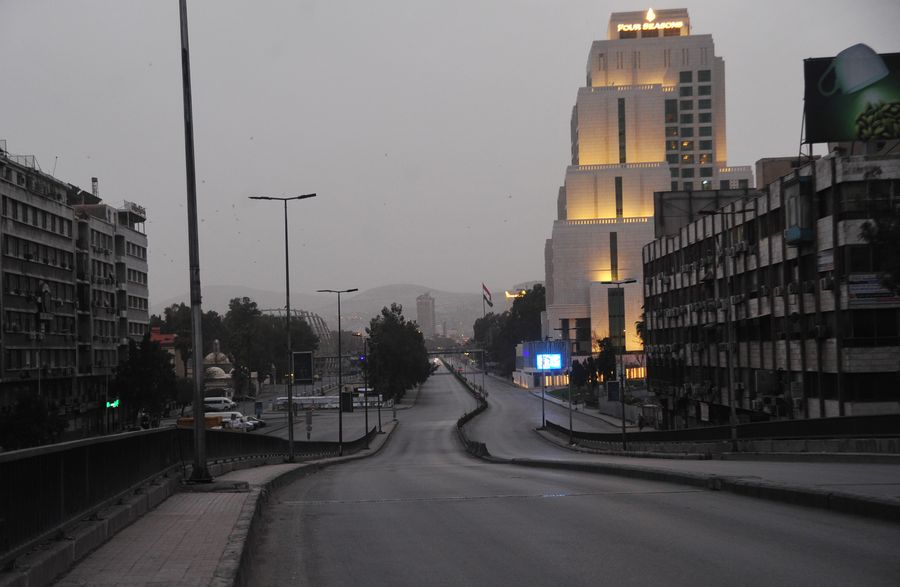
Kids are seen wearing masks in Damascus, capital of Syria, on March 28, 2020. (Xinhua/Ammar Safarjalani)
Boredom, anxiety, and even a bit of depression. As home quarantine has become a necessity around the world amid outbreak of #COVID19, the bonds between family members, at least in Syria, are apparently being put to a rare test.
DAMASCUS, March 29 (Xinhua) -- As the home quarantine has become a necessity around the world amid the outbreak of the COVID-19, the bonds between families, at least in Syria, are being put through a rare test.
In our modern history, the moments for family members to spend long time together at home are few and far between. However, the ongoing coronavirus pandemic has created an opportunity for everyone to review their family ties.
In the capital Damascus, people used to be busy with their daily jobs, seeing other people and interacting with friends. When they returned home in the evening, there was always something new to talk about with other family members.
But now with the home quarantine, the whole family suffer from their daily routine with almost no new topics, triggering even fights between spouses.

Men are seen wearing masks in Damascus, capital of Syria, on March 28, 2020. (Xinhua/Ammar Safarjalani)
Ammal Hanna, a Syrian housewife who has been under a self-imposed quarantine for two weeks, said staying at home with her husband has posed a challenge to her relationship with him.
"We got married five years ago after a long love story but normally we don't spend time together. But this quarantine is making me learn how to make compromises," she told Xinhua.
"We cannot stay in a fight all day long. We are learning how to understand each other more and make compromises," Hanna explained.
However, the 35-year-old woman admitted that if the situation drags on, she may move to her parents' house.
For Ammar Ihsan, a 33-year-old man, the news about the novel coronavirus is astonishing, adding more uncertainty to the nine-year-long war in his country.

Empty streets are seen in the capital Damascus, Syria, on March 27, 2020, as a result of the government-imposed curfew to contain the COVID-19. (Xinhua/Ammar Safarjalani)
"I thought that after this war we would have a good time ... However, we witness war and the disease, and this wasn't expected at all," he told Xinhua.
Like many other young people, Ihsan had to leave his home in a battle zone east of Damascus to spend the best years of his youth in war.
"I still live with my parents and other brothers in the same house now, but we are still trying to cope with the situation and do things that make us forget, even a little, about the situation outdoors," he said.
Even his father Muhammad said he has never experienced anything like this in his life.
"I have never experienced a curfew in my entire life and I never thought I would," the 66-year-old man told Xinhua.
The Syrian government has imposed a forceful curfew for 12 hours per day, which many Syrians think is a prelude to a full day curfew soon.

Empty streets are seen in the capital Damascus, Syria, on March 27, 2020, as a result of the government-imposed curfew to protect against the COVID-19. (Xinhua/Ammar Safarjalani)
Samar Kassab, a housewife, told Xinhua that she is extremely bored with the situation, saying she spends days cleaning and sterilizing the house while following up on the coronavirus news.
She said she is having quarrels with her teenage son who refuses to stay indoors.
"I know he is a teenager and it's his time to go out to live his life, but we live in a very dangerous time," Kassab noted.
Syria has so far reported four coronavirus cases. ■



